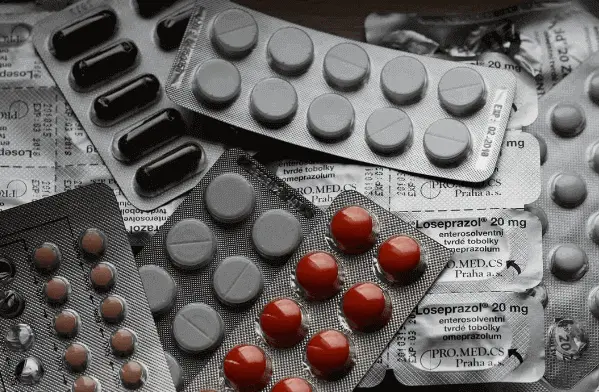Now that you have gone through all the exercises and workouts shared by us on our other blogs, now you have started working out and you are here to know about your muscle soreness, how it is caused and how you can deal with it. Unfortunately, you can not avoid sore muscles but there are ways you can lessen the amount of pain.
Why do our muscles get sore after a workout, to begin with? You have gone on a hike with your friends or you have completed a marathon, sores are common when you try out a new workout routine and you are suffering from muscle soreness. These are also sometimes known as delayed onset muscle soreness (DOMS) as they occur after an exercise or workout session.
When you have a very intense workout session you tend to cause micro-tears in your muscle tissue, this damage initiates muscle repair by causing inflammation at the site. Fluid accumulation is caused by inflammation in the muscle and this exerts excessive pressure causing a sensation of tightness ache.
Generally, we damage our muscles every time we exercise but some activities and workouts like high-intensity workouts, step aerobics, and running cause more damage than you would expect consequently causing muscle soreness. This soreness lasts anywhere from 12 hours to 48 hours.
Sometimes sore muscles are good
Though torn muscle tissue and inflammation sound bad, excessive inflammation is bad as it has been found to indicate chronic diseases but inflammation is significant as it acts as a signalling agent for muscle growth and repair. Keeping this in mind it is also important to remember that being sore is not an indication of your workout being effective and working out to cause soreness should not be your goal.
How to fix muscle soreness?
Ease your sore muscles with one of the below-mentioned strategies which are quite effective.
How warming up decreases post-workout muscle soreness
Studies suggest that warming up just before a workout helps reduce muscle soreness for up to 2 days later. 10 to 15 minutes of stretching exercises before your extensive workout session will help you with post-workout muscle soreness.
Stretching and even brisk walking before a workout will get the blood flow more to the muscles. This helps decrease the soreness in the muscles along with preventing the risk of injuries.
Staying hydrated
Though it might sound obvious, staying hydrated is one of the most important factors to consider for muscle recovery. The fluid intake goes through the body relieves inflammation, supplying nutrients and removing waste products, maintains body temperature eases joints, and helps in reducing fatigue and cramps. Therefore it is very important to keep hydrating during as well as after your workouts.

Using a foam roller
SMR (self-myofascial release ) is a procedure used to relieve tensed-up connective tissue helping by moving the accumulated inflammatory fluids. Based on several studies it has been found that using a foam roller decreases the delayed onset of muscle soreness.
Using a softer version of a foam roller is suggested. So from now on after a workout uses a foam roller for about 10 to 15 mins and consider it a cheap way of giving yourself a deep tissue massage.
Eat soon after an intense workout session
By eating you are providing your muscles with enough nutrients to help them repair and grow stronger, this eventually helps you to heal faster. Experts suggest consuming around 30 grams to 50 grams of proteins and 25 grams to 35grams of carbohydrates within half an hour of an intense workout.
Consumption of protein is vital which is made up of building blocks called amino acids, these amino acids are useful as they help to rebuild muscles, and carbohydrates help recharge your energy stores. You are only going to stop the recovery process of your muscles if you starve yourself for the remainder of the day.
Eating green leafy vegetables, fruits and nuts are important for your diet as they provide you with vital minerals and vitamins that directly promote healing.
Consuming foods with anti-inflammatory properties can be helpful. Though there is no strong evidence supporting this, it is still suggested as it can help ease the soreness to a certain level. Watermelon and pineapple could be beneficial.
Sleep well after the post-workout meal
Resting your body by sleeping is a very crucial factor to heal, keep in mind to avoid other intense activities that might worsen your situation. Light activity is suggested to cause the pumping of blood well throughout the body, more blood reaches the sore muscles and this helps them recover faster.
Research has shown that training a muscle while it is still sore can negatively impact your training if it is carried into your next workouts, decreases the activation of the desired muscle group, and adversely affects your muscle recovery process.
Warming up before a workout
Warming up just before your workout helps as it gets your blood flowing and keeps your joints and muscles warm which helps during your intense workout, it not only helps your muscles during cold weather but also helps them heal back faster.
Do not push yourself
It is always bad to push your limits, overdoing might feel like the way to go to have stronger muscles but it is only going to slow down the progress and on top of that your muscles are sore now.
Reverse warm-ups
Warming up after an intense workout or decreasing the intensity of your workout at the end rather than just an abrupt stop helps in blood flow and thereby decreasing the accumulation of inflammatory fluids.
Using a massage gun
One of the best tools that promote post-workout muscle recovery. These tools vibrate and promote blood circulation in that area. A few things you should keep in mind though are to avoid applying excessive pressure and not to use the massage gun excessively which might irritate the respective muscle.

Get a massage
A massage helps areas with discomfort and tightness, it pushes fluids out of the area and promotes circulation, As a bonus, a message is relaxing and it feels good.
Consider using surface solutions
Though ointments do not reach the muscle inside they have ingredients that cause numbness of the area, relieving any sensation of pain for quite some time. But it in no way helps in muscle recovery.
Proper exercise technique
One reason for intense muscle soreness could be your improper exercise techniques which cause unwanted stress on muscle groups and it is not as efficient. You are better off asking somebody experienced to help you out or hiring a trainer.
Taking supplements
Taking omega 3 supplements, shows improved anabolic signalling, improving muscle repair and growth, and also significantly reduces muscle soreness. If you are unable to use omega-3 supplements you can also increase your fish intake in your diet. Caffeine has also been studied and researchers suggest it decreases post-workout muscle soreness.
Stay active
Based on multiple types of research conducted, it is proven that continuing to do light activity exercises will help cure muscle soreness. These activities will increase the blood flow necessary to eliminate the waste chemicals associated with this soreness.
Ice packs or Cryotherapy
Using ice packs reduces inflammation and also causes numbness of the area, decreasing blood flow thus temporarily relieving the pain. Cryotherapy is a treatment done by professionals where cryo stimulation occurs by application of extreme cold thereby stimulating the flow of oxygenated blood to joints and muscles, reducing inflammation.
Warm showers
Followed by a tiring workout taking a warm shower helps tone down muscle soreness. Heat therapy is said to be effective, especially for delayed onset muscle soreness. You may also try using warm towels and even heat packs can also be helpful.
It has been advised to use moist heat as its effectiveness is higher than dry heat. So, warm baths are one of the best ways. But if you wish to use a warm towel, make sure to use it while it is damp.
Taking NSAIDs or painkillers
Though it may be very tempting to take a painkiller once and then because of that immense pain, studies have found that along with decreasing inflammation, and relieving the pain these have found to slow down the muscle regrowth process. Thus keeping you away from better and stronger muscles.

Conclusion
If you are starting a new workout routine, then muscle sourness ought to happen. But do not let this stop you from working out. Your body will get accustomed to this and make your muscles stronger. Recovering your muscles from this in the right ways will make them stronger and bigger.
It is important to contact your doctor if your muscle soreness lasts for over a week, the pain is intolerable, it is getting worse, or you notice redness and swelling at the site. It could be an injury.
As every cloud has a silver lining, meaning everything bad has a good side to it, your muscle soreness is an indication of your stronger muscle growth.
